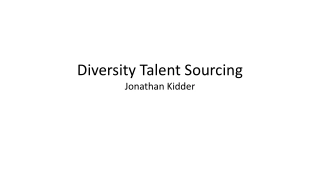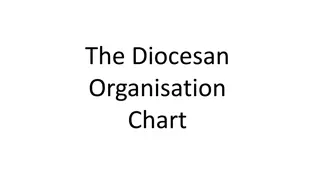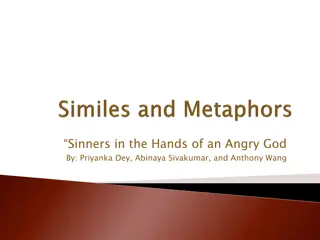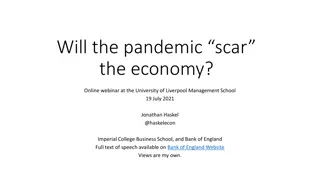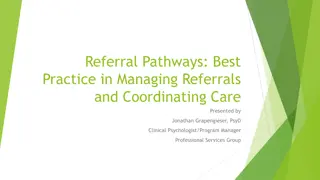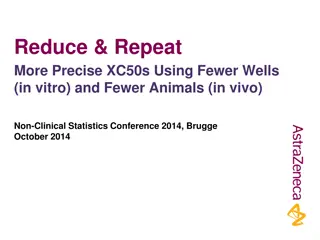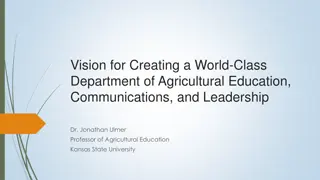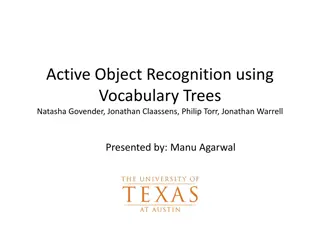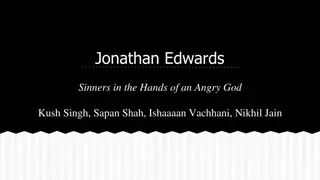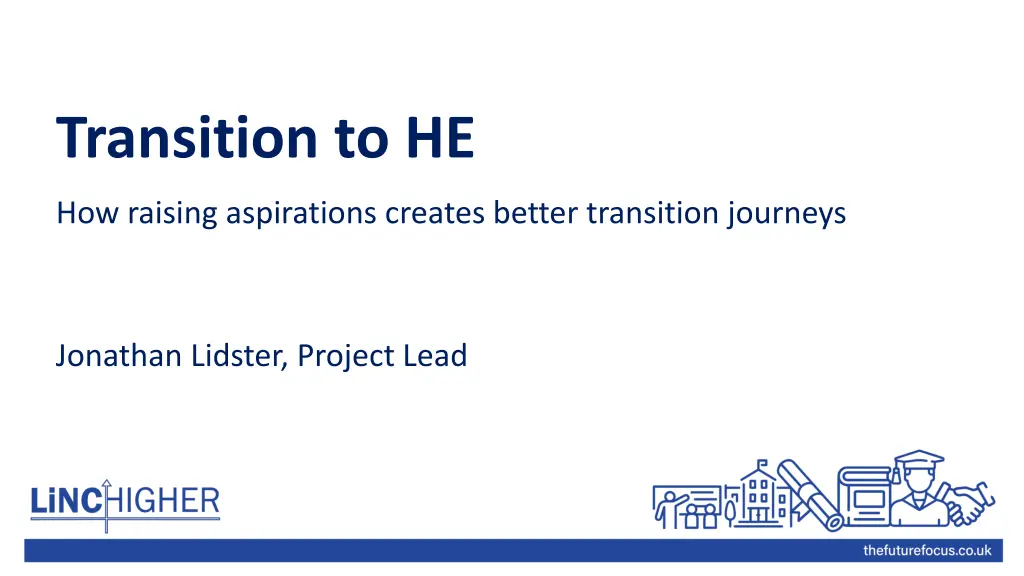
Raising Aspirations for Better Transition Journeys in Higher Education
Explore the impact of raising aspirations on transition journeys to higher education, focusing on initiatives like the LiNCHigher UniConnect Programme. Discover the importance of addressing socio-economic disadvantages and barriers faced by disadvantaged students in accessing higher education.
Download Presentation

Please find below an Image/Link to download the presentation.
The content on the website is provided AS IS for your information and personal use only. It may not be sold, licensed, or shared on other websites without obtaining consent from the author. If you encounter any issues during the download, it is possible that the publisher has removed the file from their server.
You are allowed to download the files provided on this website for personal or commercial use, subject to the condition that they are used lawfully. All files are the property of their respective owners.
The content on the website is provided AS IS for your information and personal use only. It may not be sold, licensed, or shared on other websites without obtaining consent from the author.
E N D
Presentation Transcript
Transition to HE How raising aspirations creates better transition journeys Jonathan Lidster, Project Lead
LiNCHigher UniConnect Programme Started in 2017, OfS UniConnect programme consists of 29 national partners and supports the Government Social Mobility and Levelling up objectives. Through information, resources and activities we equip young and adult learners from underrepresented groups to make an informed choice about their options in relation to the full range of routes into and through higher education and to minimise the barriers they may face when choosing the option that will unlock their potential. Since 2017 over 765,000 young people have engaged in higher education outreach through the Uni Connect programme and in 2019-20 partnerships were working with 2,480 schools and colleges. LiNCHigher is a consortium of Lincolnshire based Higher Education Providers, agencies and partners. Through a joined up collaborative approach we support all young people, adult learners, parents/carers, professional practitioners and community groups, specifically targeting those from areas of high deprivation and limited progression to HE.
Why is this important? Higher Education accessibility is not equal amongst all young people Socio-economic disadvantage continues to be a significant driver of inequality in terms of access to, and outcomes from higher education. Disadvantaged Students LESS likely to go into Professional Jobs Disadvantaged Students 4x Less likely to enter University Advantaged Students 6.3x More likely to enter a Selective University 2xas likely to drop out degree level study 2xas likely to drop out of academic post-16 education Aged 26, 4 IN 5 earn below the just about managing threshold ( 21k per annum) 5x more likely to be NEET at some point aged 16-19 Source: UniversitiesUK, UCAS End of Cycle report, 2019-2020, Department for Education Post-16 education outcomes for disadvantaged students, 2018, Impetus The long-term NEET population, 2019
Proportion of pupils in England starting higher education by age 19 in 2018-19 Other aspects which influence intention and access to HE Where you live / local deprivation Care Experienced/Estranged 1st Generation Attainment Qualification pathway Gender Disability/SEND Parents/Family profession Their School!! Source: Office for Students
What's the barriers faced by young people? University Ain't For the Likes of Us, Olivia Fletcher- Working Class student s road to Cambridge University Complex array of interlocking variables, both real and perceived, formed from a young age I reached a point where I was begging someone, anyone, to please just get me out of the sh*%hole I grew up in. I couldn t do it anymore. Limiting self belief in academic ability to access or be successful in HE Social: Sense of place & belonging conceptualisations, people like me There wasn t a specific event. It was just a build-up of many things. Where I m from is a place where parents and even, in some cases, grandparents went to the same school as their children. Only just over half of my year group got a GCSE in English or maths. The father of one of my best friends was born in one house, lived in the house next to it and is now raising his family in the one adjacent to that. We re sort of like the people of Maycomb County described by Harper Lee poor, socially immobile and unaware of what lies beyond the town s borders Culture: Community & Peers HE is not for people like us Economic: Financial concerns i.e. Debt for student and family Future Expectations: Low aspirations by self, teachers, school culture, family or community
How does this play out? Inequality already makes young people more vulnerable to mental health issues even before entering HE Mental health is closely related to many forms of inequality, with a particularly pronounced gradient for severe mental illness. The prevalence of psychotic disorders among the lowest fifth of household income is 9 times higher than in the highest and double the level of common mental health problems between the same groups. (Gov.uk 2021) LiNCHigher Student Survey Findings 2020-2022 (11,000 responses) Financial Concerns Low confidence highest in Year 13 students, irrespective of school Cooke et al. (2004) studied the relationship between student debt and mental wellbeing and found that students with high financial concerns felt more tense, anxious or nervous Transitioning to HE Lowest confidence amongst girls & disabled students Points of transition are associated with increased risk of developing mental health problems, due to the stress of adapting to new circumstances (Brown, 2016: 20). Increase in students actively asking for more IAG and support Sense of place/Conceptualisation Students sense of belonging has predicted their social and academic adjustment, quality of experience, and academic performance (Ostrove & Long, 2007). Social isolation from community prior and during HE, with later isolation following graduation. Significant increase in undeclared disability i.e. Mental Health Ethnicity & Identity 69% of 240 BAME students stated they felt they belonged at university, compared to 82.8% of their white peers (Zhu et al 2021). Culture feeling of being overwhelmed by the need to rapidly adjust to new and unfamiliar ways of living at university, is common amongst both White and BAME students (Kift and Nelson, 2005)
What we do FE/HE Aspiration, Attainment & Skills Raising Successful integration and participation Transition Support their decisions through practical information to prepare for transition by minimising the barriers Pathways & Options Impartial IAG to make informed decisions to future careers and qualification routes
Active, early & progressive engagement In school/college workshops & activities aspiration, motivation, managing change, goal setting and self belief benefits of HE, Student finance, UCAS Process, Revision Guides, Accommodation open Days/Campus Visits mentoring & student engagement with people like me Easily Accessible Resources for students, parents, teachers IAG Digital : FutureFocus website, E-Learning, Webinars/Podcasts, Games & Videos Unbiased and impartial, addressing all pathways equally Physical : FutureFocus Magazine, Brochures specific to parents and underrepresented groups, Lesson plans & guides Tailored Transition Support Programmes across Year 11, 12 and 13 Evaluation & Research Teacher CPD In-depth analysis to ensure that activities are adapted to address the real challenges and barriers that young people face with progression, success, and continuation into HE and employment Practical: Getting ready, Packing, Food, Money management & budgeting, Greater understanding of the barriers faced by young people Social: Student Life, settling in, making friends, societies and clubs Support services: Mental health, bursaries
Outcomes Aside from building knowledge and intention to pursue HE, the programme has become fundamental in supporting students early on with transition and preparing for FE/HE life Empowering young people to make an informed choice Challenge Stereotypes & Combatting pre-determined assumptions Build confidence, resilience and self-belief (Growth Mindset) Develop skill sets not just for access, but also participation and success in HE Conceptualising and normalising Higher Education, and sense of place Support positive mental & physical health Providing tools to overcome set backs and understand alternative pathways Remove unconscious bias Challenging school culture by changing the narrative of Higher Education Reducing anxiety which has the potential of developing into longer term mental health problems supporting students retention, success and mental wellbeing Students are more equipped and mentally ready for manage change when transitioning to HE, helping them settle quicker
What can HEIs do? Work with young people earlier on Assumption on future career & HE accessibility is determined early on even at Primary School age. Aspiration throughout the student journey - Widening Participation and Outreach isn t just about selling the benefits of HE aspiration raising, attainment raising and support needs to be embedded in all engagement through out the student journey so young people are properly prepared. FE/HE Ready Support schools and colleges in developing skills that young people will need to succeed not just those aspects which secure access, but also success in participation throughout FE/HE. Lack of preparation can effect student retention, success and mental health upon entering and throughout Collaborate HEIs cant do everything, aligning with partners provides a more joined up approach to supporting young people Prevention is better than cure - Providing early engagement (Yr 11,12 & 13) and tailored approaches to transition mitigates anxiety and stress, reducing the likelihood of students progressing to HE with mental health problems in the first place.
Thank you For more information about the LiNCHigher programme please visit www.thefuturefocus.co.uk

